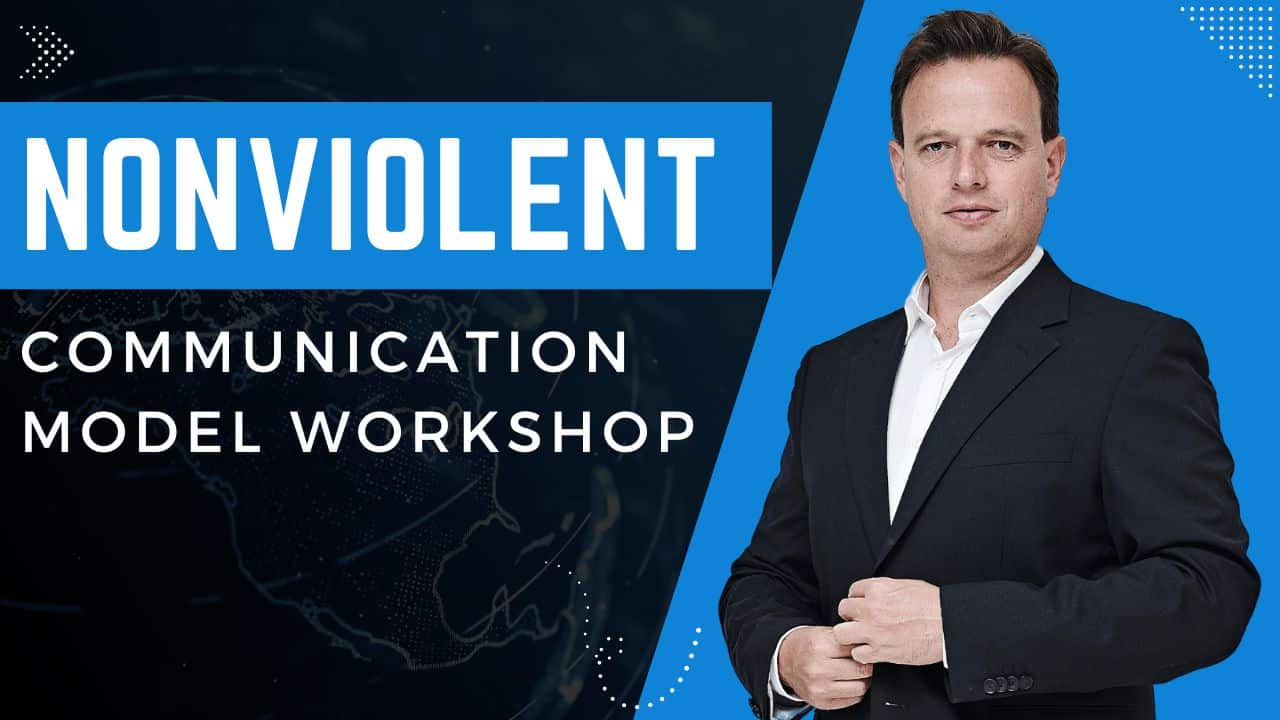
Some of the hardest moments at work aren’t about deadlines, strategy, or workload.
They’re about what to say and how to say it when something’s gone wrong.
Someone’s missed a deadline.
A colleague keeps interrupting.
You feel left out of a key decision.
Most people either stay quiet and let it build up, or they say something in the moment that doesn’t land well.
Either way, the tension lingers.
This workshop teaches a simple, practical way to handle these kinds of conversations based on the core principles of Nonviolent Communication created by Marshall B. Rosenberg.
It’s a framework that helps you say what matters without blame, and listen in a way that actually helps. Not just nod along.
Why does this matter?
Because teams don’t fall apart from poor technical skills.
They fall apart from miscommunication, unresolved conflict, and the slow erosion of trust that comes from things left unsaid or said badly.
Here’s the thing. Most people don’t fail because they don’t care.
They fail because no one ever taught them how to express themselves clearly and how to listen without trying to fix or defend.
And it’s easy to think you’re a “good communicator” until a real moment of tension hits and suddenly, the right words just aren’t there.
Here’s a thought I come back to often:
A team’s ability to speak honestly and listen well is a better predictor of long-term success than any process or tool.
And yet, most teams don’t train for it.
That’s why this workshop exists. It’s practical, interactive, and focused on real workplace situations.
Here’s what your participants will take away from the session:
- A simple 4-step model for handling tough conversations with clarity and respect.
- Practical experience applying the model to real scenarios.
- Better listening skills, especially in moments of tension or disagreement.
- Greater confidence to speak up without creating defensiveness.
- One clear communication habit to practise right away.
- No theory overload. No awkward roleplays. Just real, useful tools your team can actually use.
Let’s get into it…
Workshop Title
Clearer Conversations, Stronger Teams
Duration: 1.5 hours
Workshop Objectives
- Learn the four steps of the Nonviolent Communication model
- Practise expressing needs clearly without blame or judgment
- Improve listening skills through empathetic responses
- Apply the NVC approach to real team situations
- Commit to using one NVC habit in everyday conversations
Materials Needed
- Flipchart or whiteboard
- Markers
- Handouts with NVC framework (see below)
- Printed scenario cards (see below)
- Timer
- Sticky notes
Workshop Plan
Welcome and Purpose (10 min)
- Share the goal: clearer, kinder communication that supports collaboration.
- Briefly introduce the NVC model:
Observation – Feeling – Need – Request
Mini input: The NVC model (10 min)
- Walk through a simple example: "When I see deadlines missed (observation), I feel stressed (feeling) because I need reliability (need). Would you be willing to check in sooner next time? (request)"
- Explain that feelings reflect needs met/unmet.
- Emphasise: not about being "nice". It's about being clear without blame and listening without fixing.
Paired practice: Spot the NVC (10 min)
- Hand out 3 example statements (some judgmental, some NVC).
- In pairs, identify which follow the NVC model and which don’t.
- Group debrief: What made them different?
Team scenarios: Rewrite with NVC (20 min)
- In small groups, give each team a scenario card (e.g. "Someone talks over others in meetings", "A colleague misses deadlines", etc).
- Task: Rewrite a response using the 4 NVC steps.
- Each group shares their version. Invite discussion:
- How does this change the tone?
- Would it be easier to hear or respond to?
Real-life practice: Self-empathy + Request (20 min)
- Quiet individual reflection:
- Think of a recent frustration at work.
- Jot down: What did I observe? What did I feel? What did I need? What could I request?
- Optional: share in pairs using the NVC model.
- Listener role: just reflect back what you hear. No advice.
Team discussion: Using NVC in practice (15 min)
- Facilitate a group discussion:
- When would this be useful in our team?
- What might feel awkward or challenging?
- How could we support each other to try it out?
- Write up ideas and agreements.
Wrap-up and commitments (5 min)
- Ask each person to write on a sticky note:
- “One NVC habit I want to try this week is…” Share around the group, then stick them up on a wall or whiteboard.
Facilitation Tips
- Keep it practical. Don’t go deep into theory. Let them try it.
- Normalise that it might feel a bit awkward at first.
- Reinforce the purpose: not about getting it perfect, but building clearer, more respectful communication.
- Use real examples where possible.
- Keep the tone light and curious.
Conclusion
Most teams spend hours refining workflows, tools and processes but very little time learning how to talk to each other when it really counts.
This workshop isn’t about getting the words “right.”
It’s about building a culture where people feel safe to be honest, and skilled enough to handle what honesty brings up.
Because when communication improves, so does everything else.
Trust deepens. Decisions speed up. Small frustrations don’t become big ones.
And people actually start to enjoy working together again.
If you’ve ever felt stuck in silence, or frustrated by how things are said (or not said), this kind of practice makes a real difference.
You don’t need a full reset. Just a better way to start.
Want to try it with your team?
See you next week.

